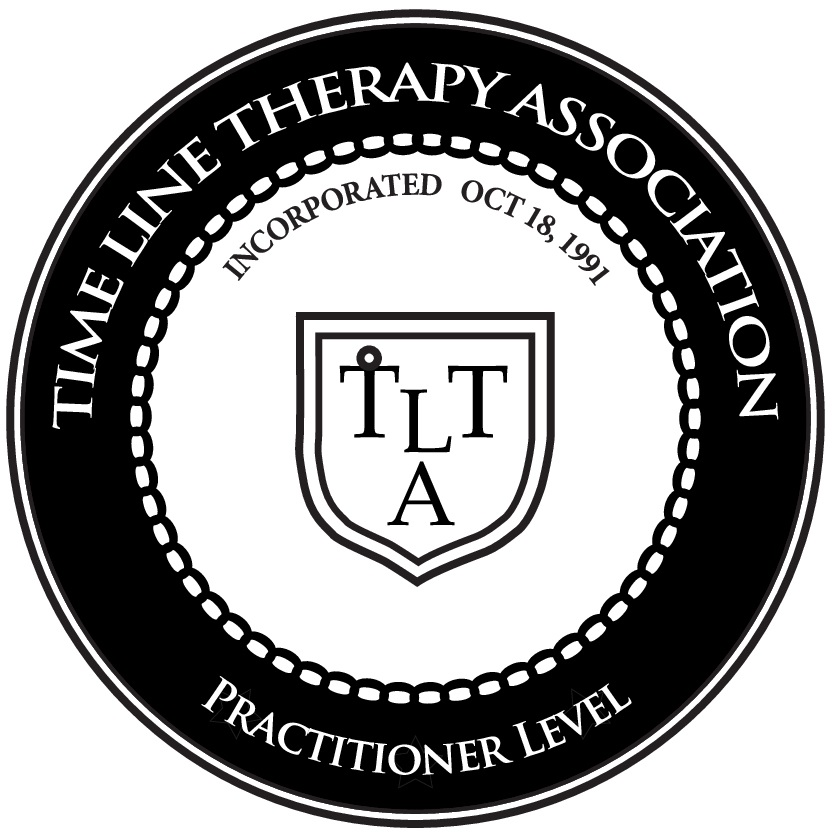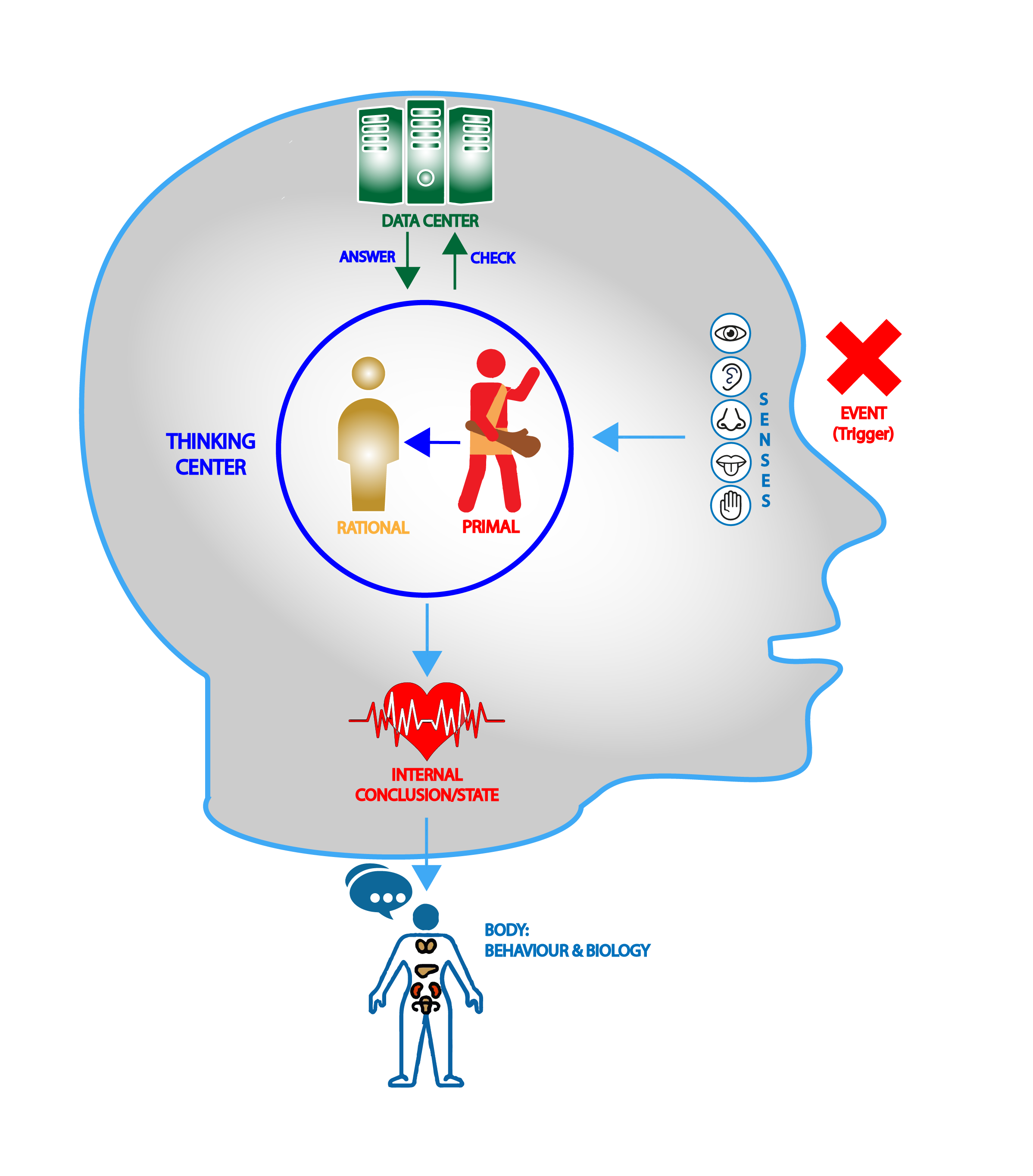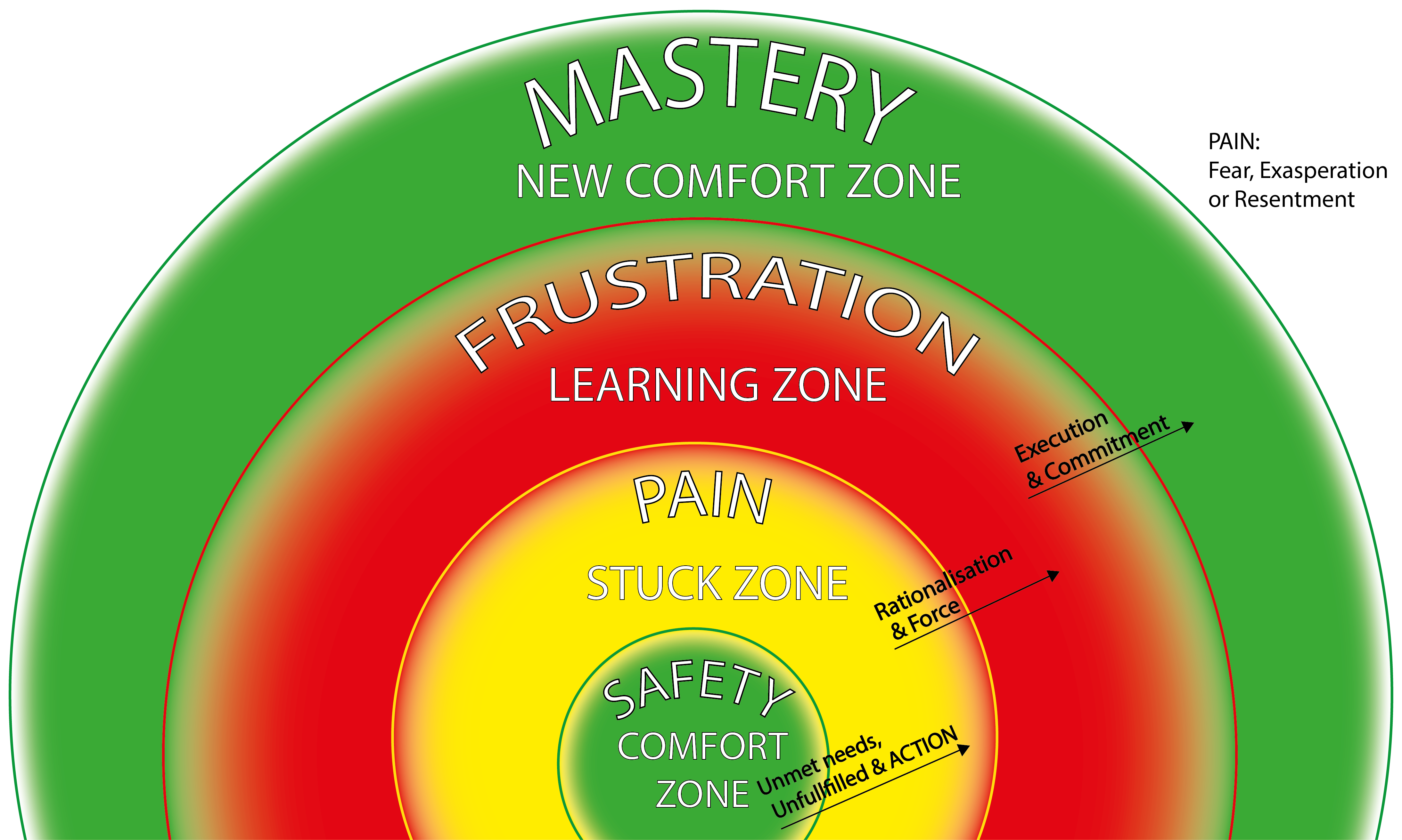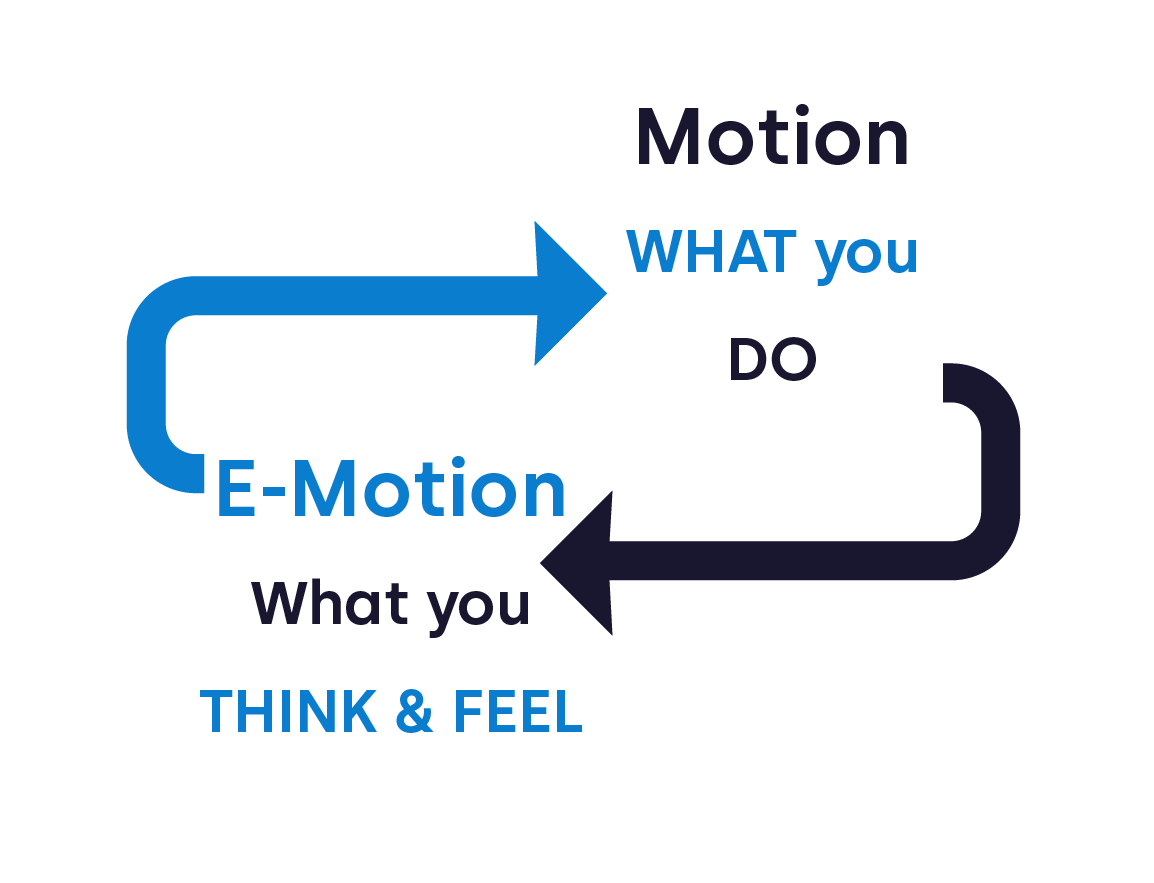Mindfulness – What will you get from it?
Is this FOR you?
What you will learn today will get you to :
☑️ Realise the benefits of mindfulness for most aspects of your life.
☑️ Grasp what mindfulness is
☑️ Discover how mindfulness can benefit you
☑️ Separate the myths from science about mindfulness
Is this like YOU?
� Have you ever had thoughts that got you to :
– Check out mentally when you are learning or speaking to someone?
– Go blank, during a presentation or an interview?
– Freak yourself out by thinking about what could happen next?
� When you are stressed or overwhelmed, have you ever wanted to disconnect?
� Have you ever heard of mindfulness & yet haven’t really grasped what it is?
What will you learn?
You will learn about mindfulness, specifically:
– What it is
– Why you need it
– Its scientific studies
– Its core principles
With this knowledge, you would be in an improved position to manage any unwanted thoughts or behavior coming from your PRIMAL (Emotional) mind.
Reminder – Why learn this?
With this knowledge, you would be in an improved position to:
✔ Gear yourself toward the impact & results you want
✔ Increase your well-being & happiness
✔ Manage any unwanted thoughts or behaviour steeming from your PRIMAL (Emotional) mind
E-motion brings motion !
Reminder – Your instinct to CONSTANTLY interpret information
As exposed previously in this article, your instinct is to CONSTANTLY interpret information.
Your brain is set to constantly give meaning to a present experience in reference to your past, future, or incoming consequences.
We are too often busy judging, interpreting & reacting instead of just being present.
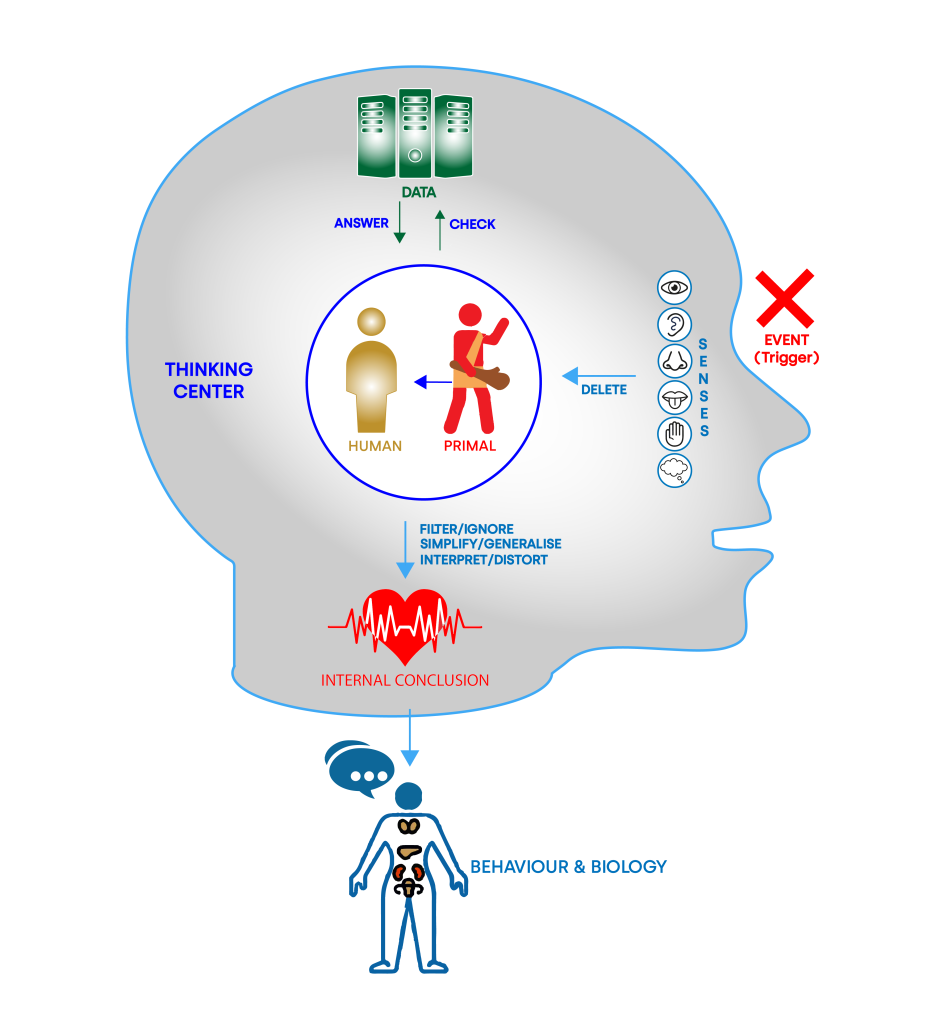
Why do you need to be mindful?
These CONSTANT thoughts can disturb your focus, it doesn’t allow you to be fully present & immersed in that moment.
Would it be helpful to you to:
✔ STOP this internal chatter?
✔ Move your attention is on what’s happening?
✔ Be immersed by listening & observing?
✔ Respond instead of reacting?
→ The capacity to be in the present moment can be developed with mindfulness practice.
Mindfulness
The benefits of mindfulness
Once practiced and mastered, mindfulness will deliver numerous short & long-term benefits.
Short-term benefits of mindfulness:
✔ Relax you and appease your PRIMAL (Emotional) mind patterns
✔ Raise your conscious awareness of your thoughts & feelings
✔ Become familiar with your own mind
✔ Learning to be awake and present in important moments of your life

Long-term benefits of mindfulness:
✔ Develop your body awareness:
This is crucial in establishing the foundation of the awareness of your thoughts.
This is because your body can be your notification system
Your body acts and reacts before you consciously do as highlighted in this article.
Your body act & react before you do
✔ Learn to relate in an alternative way to challenges.
✔ Enter easily a flow state or be “In the zone” :
It is your mental state when you are immersed & focused on an activity.
In that state, you are fully involved and perform excellently and naturally in this activity.
What is mindfulness?
Mindfulness is your ability to CONSCIOUSLY pay attention without any judgment to :
– Your inner world :
Current body sensations, feelings, thoughts, and emotions.
– The outer world :
Nature, people, place, and anything else that is around at that present moment
Mindfulness is your ability to experience the present moment & without any judgement
What did the science say about mindfulness?
Leading academic research institutions have demonstrated the effectiveness of mindfulness.
💡 Science fact
Their studies have shown that with constant practice, structural and functional changes occur in the brain, some of these are :
– Grey matter increase in the brain regions in charge of muscle control, sensory perception, memory, emotions, speech, decision making, and self-control – Research by Hoezel and Lazar of Harvard University, and others, published in 2011
– Decreased brain activation in the amygdala (PRIMAL emotional mind) – Research by Goldin and Gross of Stanford University, published in 2010
– Increased brain activity in the prefrontal cortex (RATIONAL brain), in charge of regulation of your emotions & stress levels – Research by Davidson of The University of Wisconsin – Madison published in 2012 & 2013.

2 formal practices: Body scan & breathing
There are essentially 2 formal practices of mindfulness, the length and focus vary upon the practice, there is:
– Mindfulness with the body scan
In this long-form practice, the practitioner brings awareness by feeling any sensation to EVERY part of the body one after the other.
As it is less than 30 minutes, this is best suited for early morning or late evening practice.
– Mindfulness of breathing
In this short-form practice, the practitioner brings awareness to ONLY the breath, this is about 10 minutes so it can be practiced during the day and pretty much any time you can.
⚠️ Note: You can practice by listening to the audio tape in this article
The 3 core principles
Whatever the form, the 3 core principles of mindfulness practice are :
Principle 1: Notice what you notice and as far as possible, without judgment or expectation,
Principle 2 : Bring your awareness to whatever sensations that you may find, moment by moment
Principle 3: Use your body and breath, as your home base for your attention

Enjoyed this article?
This article is an extract of the Calm & stress management & Emotional intelligence workshops.
These workshops are a transformative blend of relaxation, mind management & communication tools & techniques.
Designed to release your best, these workshops deliver you the methods to :
✔ Become more relaxed & reduce your stress
✔ Be in charge of your emotions & increase your well being
✔ Develop your leadership & influence
→ For any questions about these courses, you can schedule your FREE discovery call to find out more.
Up until the next time go learn & go RELEASE YOUR BEST !!!



